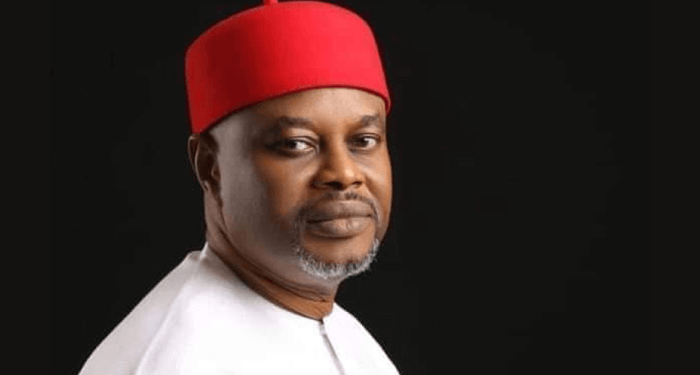In the annals of Nigerian governance, few scandals rival the web of intrigues that defined Uche Nnaji’s downfall. Appointed Minister of Innovation, Science, and Technology in 2023, Nnaji was entrusted with steering the country’s fledgling tech sector.
Yet, after two years at the helm, a blistering Premium Times investigation laid bare a forged university degree from the University of Nigeria, a counterfeit National Youth Service Corps certificate, and the lies that sought to prop up the charade.
Nnaji resigned without remorse on October 7, exposing the gaping chasm in Nigeria’s vetting processes.
How does a man peddling such documents as though procured from Oluwole—that infamous Lagos forgery hub—slip past the self-styled DSS and the Senate’s so-called scrutiny?
This isn’t mere oversight; it’s a bad national habit. Crooks and con artists hijack the levers of power, leaving the Nigerian taxpayer to pay for their criminal indulgences.
The DSS, a shadowy behemoth meant to be the gatekeeper against internal threats, concentrates on regime protection and hounding journalists, but looks the other way while fraud struts the executive corridors.
The Senate, supposedly a chamber of distinguished lawmakers, has turned its “screening” sessions into fawning chit-chat and comedy shows. Nominees genuflect and walk away, their credentials accepted without a casual legislative glance.
This is an absurdity, not a screening. Where is the forensic audit, the cross-verification with issuing institutions?
In the Nigerian Senate, “bow and go” is the gold standard. It is a lazy political culture. It is laxity and complicity, a wink-and-nod aberration that elevates the politically connected over the qualified, turning public service into a playground for dodgers and jobbers.
This farce starkly contrasts with the rigour elsewhere. In the United Kingdom, aspiring cabinet ministers endure exhaustive vetting by the Propriety and Ethics Team, including security clearances that probe financial histories, personal conduct, and credential authenticity down to the signatures. Any forged document is dead on arrival.
The United States Senate confirmation process is equally an ordeal. FBI background checks, financial closures, and public grilling have felled nominees for far less than outright forgery.
In early 2009, Congress’s scrutiny forced ex-senator Tom Daschle, Barack Obama’s nominee for Health Secretary, to withdraw over $128,000 in unpaid taxes. Recently, Matt Gaetz, Donald Trump’s ministerial pick, dropped out under intense legislative examination.
In those climes, power is not a gift—it is earned through transparency, or lost in the glare of accountability.
In Nigeria, screening is a walk in the park, even for crooks, only for journalists to do the DSS’s job after the fact. This must stop.
Nnaji’s downfall is not just a personal indictment; it reveals how easily Nigeria’s safeguards crumble. The disgraced former minister is the latest on a list of credential con artists who have stained high office.
In 1999, Salisu Buhari, Speaker of the House of Representatives, was exposed for presenting a fake University of Toronto certificate and birth credentials.
He resigned in ignominy.
In 2018, Kemi Adeosun, the finance minister, suffered a similar fate for tendering a fake NYSC exemption certificate to clinch her post.
These are not isolated coincidences; they are symptoms of a polity where verification is voluntary and punishment optional.
How many more Nnajis lurk in the system?
The fallout is catastrophic. Under Nnaji, Nigeria imported drones while innovators begged for seed funds. The country is dependent on foreign tech because homegrown talent is stifled by leaders who cannot even convincingly fake competence.
These credential scandals erode trust, deter investment, and perpetuate poverty.
Nigeria’s global reputation suffers while countries such as Singapore and Rwanda rocket ahead.
Nnaji’s resignation is no justice but a slap on the wrist. Calls for prosecution are therefore justified. He should face the Criminal Code Act, which prescribes 14 years’ jail for forgery.
Let the gavel fall as a deterrent, not an afterthought. Rights groups and lawyers have long criticised the DSS’s selective zeal—swift raids on journalists, but a shrug of the shoulders for ministerial crimes.
The system is crying for reform. Nigerian youth are watching in despair as liars lead. It is time to change the narrative.
















































